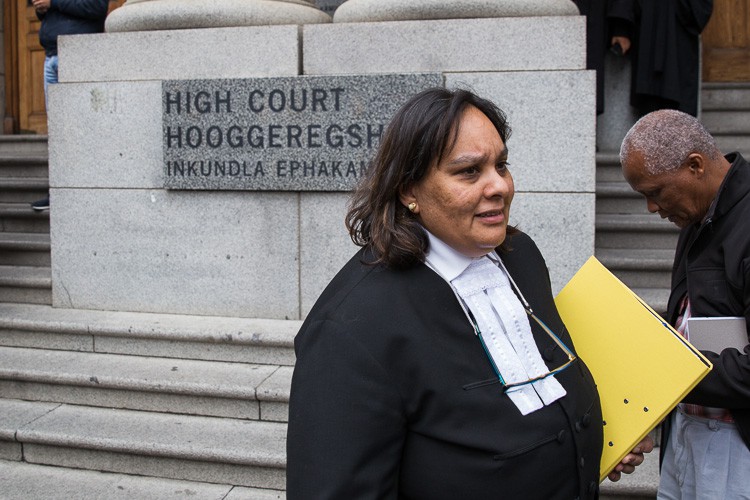State fails to protect women in Muslim marriages, says advocate
Court told of “unmet constitutional obligation”
There is a need for “coherent clear legislation” to provide for the protection of women in Muslim marriages, the Women’s Legal Centre told the Western Cape High Court on Wednesday.
Advocate Nazreen Bawa, for the Centre, said there was an “unmet constitutional obligation”.
The Centre is asking the court for married Muslim women and their children to be provided with legal protection, especially when the couple divorces or the husband dies.
The Centre argues this is necessary because of the state’s “continued failure to take meaningful steps to remedy and prevent the further and continuing infringement” of rights in the context of Muslim marriages.
A “failure to comply with constitutional obligations” had led to infringements of the Bill of Rights, Bawa said. The State had failed to protect the rights of women in Muslim marriages, as well as children born of such marriages, “by not diligently and without delay enacting legislation recognising and regulating the consequences of Muslim marriages.”
This had created a gap in legislation that resulted in “fundamentally injurious consequences for a most vulnerable sector of our community”.
There were many ways in which the state could take steps to protect and fulfil the Bill of Rights. These measures would need to be “reasonable and able to withstand constitutional scrutiny”.
Bawa said that the state had a duty to put in place reasonable and effective regulatory and/or policy measures recognising the consequences of Muslim marriages. To do this the state must “prepare, initiate, enact and bring into operation an Act of Parliament providing for the recognition of all Muslim marriages as valid marriages for all purposes in South Africa and regulating the consequences of such recognition”.
This would also include providing for the dissolution of such marriages, custody and maintenance of children born of such marriages on divorce.
Judge Siraj Desai asked whether it was necessary to regulate. Bawa responded that if there was no regulation then there would be no effective relief.
The case is set to continue for the next two weeks and again for four days from 11 December 2017.
Support independent journalism
Donate using Payfast

© 2017 GroundUp. 
This article is licensed under a Creative Commons Attribution-NoDerivatives 4.0 International License.
You may republish this article, so long as you credit the authors and GroundUp, and do not change the text. Please include a link back to the original article.

